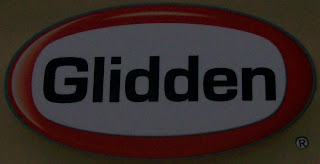Watt O’Hugh III is an interesting fellow, or so I am told. A 19th century orphan from New York’s desperate Five Points slum; a Wyoming gunman and dime novel hero; a Wild West showman; a Time Roamer, doomed to know the day of his own death. A superstitious, damaged Civil War veteran who believes, rightly or wrongly, that his tremendous skills with a 45 can be explained only by the ghosts who swarm around him, protecting him from harm and guiding his shots (when his cause is just). And a cowboy still desperately and impossibly in love with Lucy Billings, the New York Socialite-with-a-Past that he loved and lost a decade ago, and who’s vanished somewhere in China.
Watt O’Hugh has been on my mind for a long time.
Back in the 1990s, I was a journalist writing about movies for a number of papers, interviewing film stars (and lots of starlets, mostly from Europe for some reason, with the occasional Jackie Chan and Leonardo DiCaprio tossed into the mix), when my agent asked me to try my hand at a fantasy novel. Before long, the two of us dreamed up Watt O’Hugh. For a few months, back then, I found myself living in the 19th century. In 1874, in New York City (a place and time that, by now, I could lead you through with ease), I rode the El, strolled past the junk shops on Chatham Street and lunched at the Fifth Avenue Hotel, the one torn down in 1908; and in Leadville, Colorado, I peered nervously at State Street’s infamous gambling dens. Various personalities of the age lived at our house, from J.P. Morgan to Oscar Wilde! I spoke to Western historians; one suggested the Wyoming Territorial Prison as a place to lock up O’Hugh when his luck went south; another, Elnore L. Frye, taught me how to break out of the same prison and to swim through the icy waters of the Laramie River.
Other than the Magic – the Time roaming, the women of the dark arts, and a dragon or two – the novel I was writing was really very historically accurate.
Two-thirds of the book spilled out of me like a dream, as quickly as I could type. I skipped ahead to the last scene, a sunset-bathed portrait of tired lovers at the edge of a cliff, storm clouds churning overhead. How did they get there, and what did it mean? I didn’t know. A major publisher came calling. So did a Hollywood producer; in Burbank’s CBS commissary, I joined him for turkey tetrazini. (He has since gone on to great things.) I guess life couldn’t have been better. And the turkey tetrazini was actually pretty good.
But fortune has a way of turning. Business relationships crumbled, friendships ended, and I didn’t finish my book. I stopped writing altogether, moved into an office on Wall Street, negotiated some deals. While there was a certain art to that, over the years (decades, actually!) I couldn’t quite forget about O’Hugh and his great, tragic love for the New York socialite Lucy Billings, the vast Western landscape that threatened always to swallow him alive, and that last romantic scene, with its unanswered questions.
Well, my wife and some friends who had read my unfinished tome over the years sat me down and told me that enough was enough. Just put this thing on Kindle, and print on demand, one said, and at least I will finally get to learn how the damn thing turns out. My little daughters urged me to write them a book. One friend offered to draw the cover art. What he came up with, in my opinion, is both beautiful and haunting. A real book cover. So I took some time off from work, and Watt O’Hugh came back to visit like an old, long-lost friend and told me the rest of his story.
But what, I wondered, is a self-published book, anyway? Is it really a book? Is it really “published”? An old-school publishing guy, I intended to keep my mouth shut and hope no one noticed that I had a book out there. My friends could have their closure, and my daughters could have a strange fantasy/adventure novel, written by their old man and dedicated to them, to put on their bookshelves, to re-read as old women, and to give to their grandkids. But early reaction – especially a gratifying Kirkus rave -- has been ecstatic. Maybe Watt O’Hugh belongs to the world after all? Maybe he was always meant to be a self-published dime novel hero, to live his marvel-filled life without the oversight of a multinational publishing corporation worried about marketing. Maybe his audience will find him?
Anyway, I hope so, and I hope you will enjoy his adventures, and his romance.
Let me know what you think.
 My husband and I decided that it was time to add a little life to our bedroom. We went to Walmart picked up some Glidden Testers in three of our favorite colors. Glidden has so many color choices and it was really hard to narrow it down. In the end, we went with a blue for James, a purple for me and Peacock Blue because it blew our breath away. As soon as we got home, we tested these colors on our on the wall above our bed. The little brush on the testers make it really easy to see what the possibilities are.
My husband and I decided that it was time to add a little life to our bedroom. We went to Walmart picked up some Glidden Testers in three of our favorite colors. Glidden has so many color choices and it was really hard to narrow it down. In the end, we went with a blue for James, a purple for me and Peacock Blue because it blew our breath away. As soon as we got home, we tested these colors on our on the wall above our bed. The little brush on the testers make it really easy to see what the possibilities are.


























